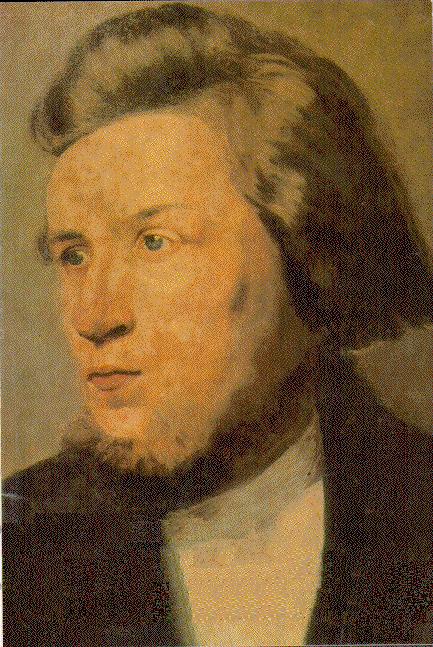
Today, after much soul-searching and delay, I made up my mind to go to a certain well-known men’s clothier and buy a suit. More than that, I allowed myself to be talked into ordering what’s known as a “bespoke” suit – cut to my size and tailored for my peculiar personal form. The waiting time will be more than a month.
You see, I’ve got a little money coming in, and I’ve frequently felt the incongruity of the fact that, for all my talk about men dressing decently, my own (only) suit is rather shabby. It’s a point of traditional wisdom that a “decent” suit is not an extravagance. A man ought to be prepared to present himself respectably when it’s called for.
My suit will be a rich, elegant black, so that I can wear it with my customary black Victorian vests.
Black is the traditional color associated with Pietism and Puritanism (though the Pilgrims of Plymouth Colony, generally depicted in illustrations in severe black suits, actually liked bright colors. And their hats were not tall and stiff, but soft).
I’ve been reading about my own Pietist roots, in Thomas E. Jacobson’s recent book, Pain In the Belly. It’s about the Norwegian pietist Haugean movement, especially its history in the United States. I’ll be reviewing it once I finish it, but one thing strikes me already:
Author Jacobson (who happens to be a friend of mine) likes to describe the conservatives, the party who wanted to follow the patterns of the old Norwegian state church, as “objective,” since they emphasized the efficacy of the sacraments, in which God does all the work and we are mere recipients of His grace.
My people, the pietist Haugeans, he describes as “subjective,” since we emphasized the necessity of a personal experience with Christ. We were suspicious of anyone who said their relationship with God was confined to receiving the sacraments. If faith is real, we argued, the individual will be transformed, and there will necessarily be an emotional component.
I’m not accustomed to thinking of us Haugeans as subjectivists. I’ve been a strong opponent of subjectivism in the church since college.
And yet the description is perfectly fair. I’m used to thinking of the subjective as just mushy emotionalism, but it doesn’t have to be. Real life is, in fact, a combination of the objective and the subjective, just as it involves the combination of the physical and the spiritual.
But this led to a further puzzling thought.
We Haugeans are often accused of Pharisaism, but Pharisaism is a defect of objective theology. The Pharisee makes a list of his duties, checks each item off the list, and considers himself square with God.
Haugeans are the opposite. We emphasize the passion of faith, total submission in all areas of life.
And yet, it’s not unfair to compare us to Pharisees. We do tend to get obsessed with lists of rules, as means of demonstrating our inner piety. I comment extensively on this characteristic in my novel, Troll Valley.
Perhaps the bottom line is that nothing human is entirely one thing or another.



